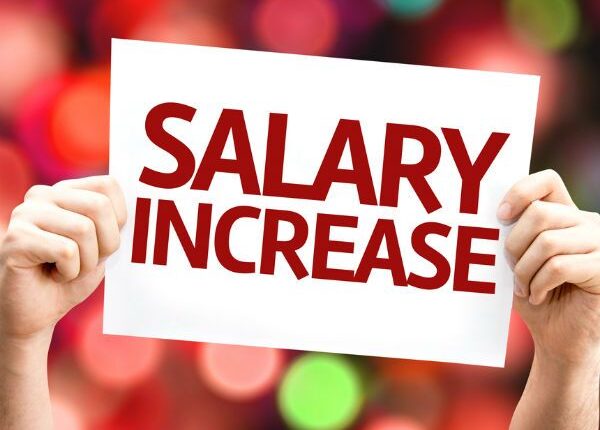Government together with Organised Labour have signed an agreement to increase the base pay for public sector workers by 10 percent, with the increment set to take effect from January to December 2025.
This announcement was made on Thursday, February 20, 2025.
The agreement, signed between the government: which was represented by the Fair Wages and Salaries Commission (FWSC), Ministry of Labour, Jobs and Employment (MLJE), and Ministry of Finance (MoF) and Organised Labour, outlines a 10% increase in the base pay on the Single Spine Salary Structure (SSSS).
This decision was reached after negotiations under the Public Services Joint Standing Negotiating Committee (PSISNC).
“This agreement is made this 20th day of February, 2025, between the government of Ghana, represented by the Fair Wages and Salaries Commission (FWSC), Ministry of Labour, Jobs and Employment (MLJE), and Ministry of Finance (MoF) of the one part, and OrganisedLabour comprising workers’ unions and institutions within the public service of Ghana of the other part.
Whereas the parties, negotiating as the Public Services Joint Standing Negotiating Committee (PSISNC), have concluded negotiations for the 2025 Single Spine Salary Structure Base Pay; it is agreed as follows: that the base pay on the Single Spine Salary Structure (SSSS) has been increased by 10% across board from January 2025 to December 2025. In witness whereof the parties herein have set their names and hand this 20th day of February, 2025,” the letter stated.
Organised Labour had earlier pushed for an increment in base pay, and according to the Minister of Labour, Dr. Rashid Pelpuo, the daily minimum wage has now risen to GH₵19.97. This marks the second wage adjustment within a year, following a significant 23% salary hike in 2024 aimed at easing the financial burden on workers amidst economic challenges.
Despite the increment, Labour Consultant Austin Gamey has criticised the government’s decision, warning that the 10% salary hike for public sector workers could worsen inflationary pressures and further strain the economy.
In an interview with Citi News, Gamey described the increase as excessive and cautioned that even a modest 1% salary adjustment in the public sector could lead to inflationary consequences, ultimately affecting all citizens, including the workers receiving the increment.
“I would have preferred it lower because even a 1% adjustment on the public sector wage takes us to another inflationary bracket, and that comes back to bite all of us, including them,” he cautioned.
While acknowledging that private-sector wages tend to align better with economic realities, Gamey argued that public sector salary increments should be directly tied to productivity, a practice Ghana has yet to fully implement.
“The private sector responds well, but the public sector doesn’t respond well. So, for fairness, the 10% is about the best for now. I would have preferred something else,” he added.
Gamey further stressed the need for a performance-based salary system in Ghana, stating, “Normally, base pay should be linked to productivity, but we are yet to get there as a nation. So far, we have not fully implemented a performance management system in Ghana.”


Comments are closed.